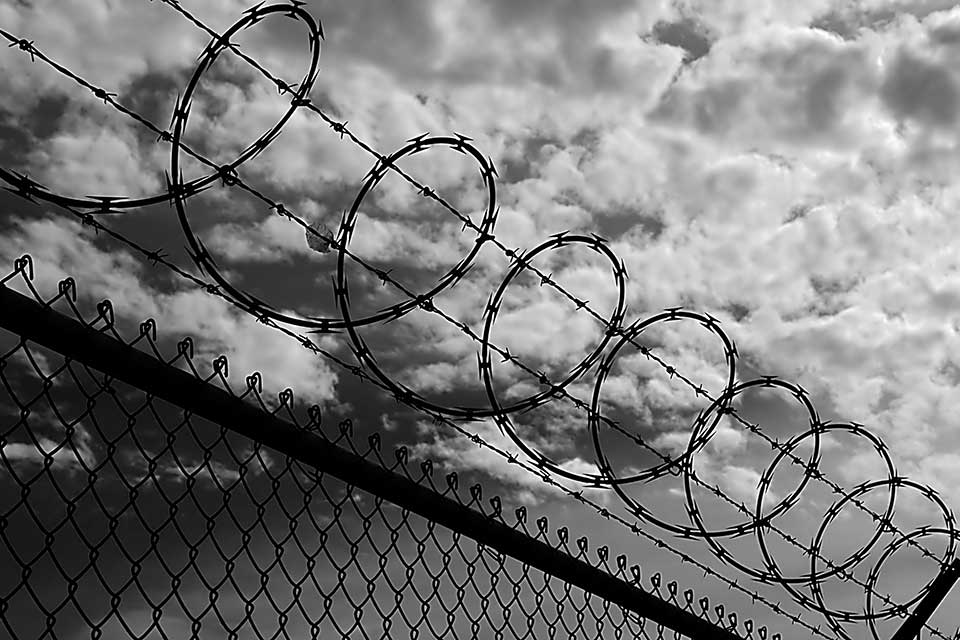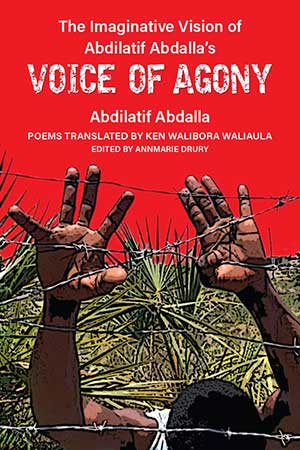Sacrifices for the Reality: On Kenyan Author Abdilatif Abdallah by Sanya Osha

Abdilatif Abdallah (b. 1946, Mombasa) is a serious Swahili poet who was, till just lately, largely unknown to English readers. A fantastic quantity of his work, The Imaginative Imaginative and prescient in Abdilatif Abdallah’s Voice of Agony (College of Michigan Press, 2024), has been edited and launched by Annmarie Drury. Sadly, Ken Walibora Waliaula, the quantity’s translator, was killed in an accident through the Covid-19 pandemic in Kenya.
 Undoubtedly, Sauti ya Dhiki (Voice of Agony) is a serious poetry assortment within the annals of late twentieth-century African literature. Annmarie Drury, Ken Walibora Waliaula, and all the opposite contributors to this elaborate and ornately designed quantity have performed the whole lot doable to situate Abdallah’s work in its correct context. They accomplish this by using many views—be they Swahili, African, or international—whereas encompassing myriad vital cultural, inventive, and political referents.
Undoubtedly, Sauti ya Dhiki (Voice of Agony) is a serious poetry assortment within the annals of late twentieth-century African literature. Annmarie Drury, Ken Walibora Waliaula, and all the opposite contributors to this elaborate and ornately designed quantity have performed the whole lot doable to situate Abdallah’s work in its correct context. They accomplish this by using many views—be they Swahili, African, or international—whereas encompassing myriad vital cultural, inventive, and political referents.
In 1969, on the age of twenty-two, Abdallah was arrested by the Jomo Kenyatta regime. He was detained till 1972 for his anti-authoritarian stance, human rights advocacy, and in response to his political tract, “Kenya: The place Are We Heading?” (Kenya: Twendapi?). His uncustomary ethical braveness and acute sense of political consciousness value him his freedom, however the loss additionally birthed a robust poetic voice.
Whereas held in solitary confinement within the Kamiti maximum-security jail, Abdallah started to compose a group of poems, Sauti ya Dhiki, on bathroom paper. These poems would later announce him as a serious Swahili poet.
Mombasa, a key metropolis of Swahili cultural and mental life, birthed Abdallah’s lucid, artistic imaginative and prescient and uncompromising ideological stance. Town has been indelibly marked by a litany of damaged treaties and disconcerting political betrayals. Mombasa is a confluence of Indian Ocean connections, socioeconomic and cultural interactions with the sultanate of Oman, ambivalent Portuguese incursions, and different colonial conquests and encounters. These historic realities have helped gas Mombasa’s Mediterranean-inflected vibrancy, cosmopolitan aspirations, and coastal uniqueness.
Abdallah’s uncustomary ethical braveness and acute sense of political consciousness value him his freedom, however the loss additionally birthed a robust poetic voice.
More and more, the world is changing into extra conscious of Mombasa’s wealthy cultural and mental heritage by the work of students akin to Kai Kresse and Alena Rettova. Kresse revealed Philosophizing in Mombasa in 2007, Swahili Muslim Publics and Postcolonial Expertise in 2019, and his translation of a choice of Sheikh al-Amin’s Mazrui’s journalism was revealed a number of years earlier. Rettova is famous for her work selling William Mkufya, a Tanzanian novelist who additionally writes in Swahili. Annmarie Drury factors out that “Abdallah’s poems resonate with distinctive subtlety and complexity” (xii). He’s additionally a poet blessed with appreciable existential vary and expertise. Such is the wealth of data and tradition to be found within the Swahili communities of East Africa.
Abdallah is a poet and a political activist of observe. The next poem, “N’shishiyelo” (I gained’t compromise), was composed by Abdallah throughout his incarceration.
I perceive fact is unpalatable
For people it’s toxic, harmful and past evaluate
Whoever speaks fact good points no reputation
Now I imagine this; it’s true certainly true
Reality has imperiled me; for talking it, my pal
These to whom I spoke topic me to anguish
They view me as evil, extra evil than Pharaoh
Now I do know fact isn’t liked by many
The second stanza affords a barely maudlin, wry evaluation of the perils of fact searching for. The strains are measured, reflective, not infused with the uncontrollable rage or unguarded chutzpah one would possibly anticipate from a younger man of twenty-two. Additionally they proffer a stark, well-informed illustration of the human situation, past the theatrics occasioned by flamboyant political grandstanding.
The direct and clear feelings expressed in “Jipu” (The Boil) are equally interesting;
I’ve a heavy coronary heart; I’m not comfortable, as a lot I need to be
It’s all the identical to me whether or not daytime or nighttime
My coronary heart is aware of the struggling I’m present process
The concerns and trepidation that torment me
I’ve a boil that has fashioned, giving me countless grief
Because it has bothered me, I’ve had no solace
It’s my first time experiencing such an ailment
Its ache stabs like needle, I let you know
His torment isn’t merely physiological however impelled by intense political turmoil and anguish. Arguably, this politically induced torment attains its climax in “Kutendana” (Tit for Tat), by which Abdallah’s defiance appears to be in free circulation, with out the coarseness of mere sloganeering. With out lacking a beat, he indicts those that really must be indicted:
Now what stays is your process, not mine
I’ll allow you to carry out it so we are able to help each other
When you accede to this, begin flexing your mind
So you possibly can undertake for me the duty I’ll identify
These three individuals who had been discovered responsible
Choose every of them based on the regulation
Don’t concern something or present favor to anybody
Deal with nobody unjustly, don’t show pity
Satirically, Sauti ya Dhiki, Abdallah’s inimitable assortment of poetry, gained the Jomo Kenyatta Prize for Literature in 1973. A tyrannical regime was inexplicably compelled to honor considered one of its most avid and eloquent detractors.
Through the Sixties, as most African nations had been gaining political independence, a brand new scramble for the continent ensued below the implacable shadow of the Chilly Battle between the Soviet Union and the West. Simply as properly that African literary arts and authors had been drawn into this international, ideologically suspect community of intrigue, subversion, subjugation, and neocolonialism. Caroline Davis’s African Literature and the CIA: Networks of Authorship and Publishing chronicles the style by which canonical African authors akin to Wole Soyinka, Bessie Head, Lewis Nkosi, and Es’kia Mphahlele benefited immensely from the CIA’s largesse with out essentially being conscious of it. The CIA had arrange the Congress of Cultural Freedom at Paris in 1950, ostensibly as a approach of broadening and consolidating American cultural energy. Lots of the African authors caught on this political manipulation went on to be family names in international literary circles. Abdallah was missed by the CIA’s dragnet, which can account for his relative obscurity with English audiences. Another excuse for this late recognition of Abdallah’s appreciable literary price is a widespread unawareness—even on the African continent—of the incontrovertible depth and intricacies of Swahili excessive tradition, despite the fact that Swahili stays one of many continent’s most generally spoken languages.
Moreover, Swahili society doesn’t represent a dominant political configuration in Kenya, so Swahili producers of tradition are, arguably, minoritized in consequence. Nevertheless, Kenya’s foremost novelist, Ngũgĩ wa Thiong’o—whose profession could have benefitted marginally from the cultural machinations engineered by the superpowers of the Chilly Battle—wrote a succinct and insightful preface to Abdallah’s quantity. Ngũgĩ factors out that Abdallah “is unbiased Kenya’s first political and literary prisoner.”
Nonetheless, he’s fast to make an vital distinction. Through the colonial period, poets and musicians deemed to be a part of the Land and Freedom Military—erroneously misnamed the Mau Mau—had been routinely arrested and detained by the authorities. Horrifying tales concerning the torture, degradation, and dehumanization meted out to activists of the resistance motion have since come to mild. Notable resisters of colonial servitude included Henry Muoria, Stanley Kagika, and Gakaara wa Wanjau. Eight years after Abdallah was detained, Ngũgĩ would himself be incarcerated on the identical maximum-security jail by the infamous Kenyatta regime. And as Abdallah had performed earlier, he would go on to put in writing his novel, Satan on the Cross (Caitaani Mutharabaini)—initially in Gikuyu—on bathroom paper.
This lavishly conceived and assembled quantity features a choice of crucial essays on Abdallah’s work and life. Ann Biersteker additionally has an essay on Abdallah’s groundbreaking anthology, Sauti ya Dhiki, and the place it occupies in each Swahili and East African literatures. Meg Arenberg affords an article on rhymed, metrical translations of 4 of Abdallah’s poems, whereas Alamin Mazrui displays on his encounters with the esteemed poet.
Kresse has translated the incendiary article Kenya: Twendapi? that received Abdallah incarcerated within the first place. On this transformative article, Abdallah castigates the Kenyatta regime for undermining democratic ideas, entrenching authoritarian rule, and curbing the civil liberties of Kenyans.
Abdallah stays an vital voice for justice, human rights, and democracy.
After regaining his freedom and ultimately relocating to Europe, Abdallah stays an vital voice for justice, human rights, and democracy. He can rightly be thought-about “a world public mental,” as Ngũgĩ labels him. Certainly, Abdallah was awarded the 2018 Nichols-Fonlon Prize for Inventive Writing and Contributions to the Wrestle for Human Rights and Freedom of Expression.
What has Abdallah’s artistic journey finally revealed? As a younger man, he launched into a singular quest that mixed the romanticism and idealism of youth, unbowed political activism, and a potent inventive imaginative and prescient. In contrast to most youthful adventures which might be normally marred by recklessness, nevertheless, his quest ended up bequeathing a formidable literary legacy.
African Research Centre, Leiden / ZMO, Berlin

0 Comment